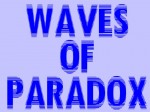Long Synth Solos? (Especifically for dubstep?)
22 posts
• Page 1 of 1
Long Synth Solos? (Especifically for dubstep?)
Do any of you guys have any tips on writing long synth solos? (Like, at least 32 bars long?) I already really suck at writing normal melodies, but I want a nice intro for my dubstep song. Do any of you guys know how to pull something like this off?
I'm looking for something sliiiightly like this:
Maybe not nearly as complex, but something sort of similar. (With a more dubsteppy-ish feel obviously) I know it's a broad question but it's kind of a broad topic.
I'm looking for something sliiiightly like this:
Maybe not nearly as complex, but something sort of similar. (With a more dubsteppy-ish feel obviously) I know it's a broad question but it's kind of a broad topic.
-

XXDarkShadow79XX - Posts: 940
- Joined: 13 Mar 2012 04:49
- OS: Windows
- Primary: FL
Re: Long Synth Solos? (Especifically for dubstep?)
This is something I've been wondering about too... I was considering printing out some sheet music to make it a little easier to actually write notes out, plus you don't have to worry about the keys you're not making extensive use of, like in a piano roll, but this is only in theory, I've yet to put forth the effort required to even try something like this.
-

colortwelve - Posts: 1187
- Joined: 18 Feb 2012 12:55
- Location: Los Angeles, CA
Re: Long Synth Solos? (Especifically for dubstep?)
I have a large background in prog, and this is something I've grown accustomed to writing. The most important thing to know if the chords you use, and what scales/modes you can use within those chords that will sound effective, knowing that it's not all about long fast-legato phrases, and more about tension and release, knowing when to start and stop those passages and keep it moving.
Synth design for these types of solo is important too, being able to control vibrato, knowing how to control portamento effectively, and how to make the solo sound natural. Of course you're going to reach for the piano roll immediately, but the most notable synth solo's are always played by hand.
Here are a few more examples that might help you:
Black Light Machine solo
Dear Dead Days solo
Hyperventilate solo
Octavarium solo
Screaming Head main solo
Dance on a Volcano main solo (Cover, easier to hear than the organ solo in the original)
Synth design for these types of solo is important too, being able to control vibrato, knowing how to control portamento effectively, and how to make the solo sound natural. Of course you're going to reach for the piano roll immediately, but the most notable synth solo's are always played by hand.
Here are a few more examples that might help you:
Black Light Machine solo
Dear Dead Days solo
Hyperventilate solo
Octavarium solo
Screaming Head main solo
Dance on a Volcano main solo (Cover, easier to hear than the organ solo in the original)
-

Lavender_Harmony - Posts: 751
- Joined: 13 Feb 2012 18:15
- Location: UK
- OS: Horse OS
- Primary: Not yet specified.
- Cutie Mark: Blank flank
- Raddons
- Posts: 685
- Joined: 13 Jun 2012 20:57
- OS: Horse OS
- Primary: Not yet specified.
- Cutie Mark: Blank flank
Re: Long Synth Solos? (Especifically for dubstep?)
Lavender_Harmony wrote:I have a large background in prog, and this is something I've grown accustomed to writing. The most important thing to know if the chords you use, and what scales/modes you can use within those chords that will sound effective, knowing that it's not all about long fast-legato phrases, and more about tension and release, knowing when to start and stop those passages and keep it moving.
Synth design for these types of solo is important too, being able to control vibrato, knowing how to control portamento effectively, and how to make the solo sound natural. Of course you're going to reach for the piano roll immediately, but the most notable synth solo's are always played by hand.
Here are a few more examples that might help you:
Black Light Machine solo
Dear Dead Days solo
Hyperventilate solo
Octavarium solo
Screaming Head main solo
Dance on a Volcano main solo (Cover, easier to hear than the organ solo in the original)
Thanks a ton. But I wish I had a midi keyboard. I probably won't get one ever unless I win a contest or something. For now my (letter) keyboard should suffice, so long as I play with my velocities a bit. :)
-

XXDarkShadow79XX - Posts: 940
- Joined: 13 Mar 2012 04:49
- OS: Windows
- Primary: FL
Re: Long Synth Solos? (Especifically for dubstep?)
OH MY GOD YES JORDAN RUDESS IS GOD
- Anforium
- Posts: 146
- Joined: 29 Jun 2012 16:15
Re: Long Synth Solos? (Especifically for dubstep?)
Anforium wrote:
OH MY GOD YES JORDAN RUDESS IS GOD
This just turned into a dream theater fangasm thread
Back on topic however, I find that the best way to improve solo's are to study great ones. Whenever i'm looking for inspiration on soloing, I turn to mighty Spor (I don't care if he's called Feed Me now). Notice how he uses almost everything in the book from some legato glide, some vibrato, some pitchbend, a few chords to give it extra feeling, and fills at the end of measures with very fast paced jumping around the scale.
Well I'm pretty much done with this site (it wasn't about the April Fool's joke I actually loved that). If for some reason somebody wants to contact me or something (not like any of you even care lol):
email: [email protected]
email: [email protected]
-

Friv - Posts: 271
- Joined: 11 Mar 2012 15:28
Re: Long Synth Solos? (Especifically for dubstep?)
I want to actually make a point. I don't like Dream Theater, or Jordan Rudess as much as I respect those involved with projects such as Frost*, It Bites, IQ, Magenta, and those in the proper prog bands of yestercentury, ELP, King Crimson, Marillion, Caravan, Pink Floyd, Genesis, they all left a legacy that Dream Theater could not even dream to scratch. The majority of what Rudess performs is keybed wankery, the equivelant of guitarists doing pointless, clinical-sounding shredding solo's that have no pulse, while yes, raw talent, there is no emotion to them. I've even seen studio demo's of what he does, and being classically trained, it's all from the head, not from the heart. A sequence of meaningless notes that fit the current modal framework of the chord structure.
So stop. Please.
So stop. Please.
-

Lavender_Harmony - Posts: 751
- Joined: 13 Feb 2012 18:15
- Location: UK
- OS: Horse OS
- Primary: Not yet specified.
- Cutie Mark: Blank flank
Re: Long Synth Solos? (Especifically for dubstep?)
still sounds fantastic
Hey. Listen. I don't Care anymore. You hear me you Son of a Bitch? I'm old now. I have all the resources.
Hey. Listen. I don't Care anymore. You hear me you Son of a Bitch? I'm old now. I have all the resources.
Hey. Listen. I don't Care anymore. You hear me you Son of a Bitch? I'm old now. I have all the resources.
Hey. Listen. I don't Care anymore. You hear me you Son of a Bitch? I'm old now. I have all the resources.
hello I'm spry wobbler lol I'm
Hey. Listen. I don't Care anymore. You hear me you Son of a Bitch? I'm old now. I have all the resources.
Hey. Listen. I don't Care anymore. You hear me you Son of a Bitch? I'm old now. I have all the resources.
Hey. Listen. I don't Care anymore. You hear me you Son of a Bitch? I'm old now. I have all the resources.
hello I'm spry wobbler lol I'm
-

CommandSpry - Posts: 777
- Joined: 17 Jan 2012 16:03
- Location: im here
- OS: Horse OS 2
- Primary: Not yet specified.
- Cutie Mark: wobbler
Re: Long Synth Solos? (Especifically for dubstep?)
Lavender_Harmony wrote:I want to actually make a point. I don't like Dream Theater, or Jordan Rudess as much as I respect those involved with projects such as Frost*, It Bites, IQ, Magenta, and those in the proper prog bands of yestercentury, ELP, King Crimson, Marillion, Caravan, Pink Floyd, Genesis, they all left a legacy that Dream Theater could not even dream to scratch. The majority of what Rudess performs is keybed wankery, the equivelant of guitarists doing pointless, clinical-sounding shredding solo's that have no pulse, while yes, raw talent, there is no emotion to them. I've even seen studio demo's of what he does, and being classically trained, it's all from the head, not from the heart. A sequence of meaningless notes that fit the current modal framework of the chord structure.
So stop. Please.
Seriously? Have you listened to Sacrificed Sons? Six Degrees Of Inner Turbulence? (Most emotional DT songs that came to mind)
Definetely not what I would call emotionless. Alot of people mistake slow as emotional, but 32nd notes can contain just as much emotion. What Jordan Rudess does is definetely not "A sequence of meaningless notes".
Sorry, I'm kind of a DT fanboy. But people making cliche comments like these about shredding/"wankery"/emotion piss me off to no end.
- Anforium
- Posts: 146
- Joined: 29 Jun 2012 16:15
Re: Long Synth Solos? (Especifically for dubstep?)
Anforium wrote:Lavender_Harmony wrote:I want to actually make a point. I don't like Dream Theater, or Jordan Rudess as much as I respect those involved with projects such as Frost*, It Bites, IQ, Magenta, and those in the proper prog bands of yestercentury, ELP, King Crimson, Marillion, Caravan, Pink Floyd, Genesis, they all left a legacy that Dream Theater could not even dream to scratch. The majority of what Rudess performs is keybed wankery, the equivelant of guitarists doing pointless, clinical-sounding shredding solo's that have no pulse, while yes, raw talent, there is no emotion to them. I've even seen studio demo's of what he does, and being classically trained, it's all from the head, not from the heart. A sequence of meaningless notes that fit the current modal framework of the chord structure.
So stop. Please.
Seriously? Have you listened to Sacrificed Sons? Six Degrees Of Inner Turbulence? (Most emotional DT songs that came to mind)
Definetely not what I would call emotionless. Alot of people mistake slow as emotional, but 32nd notes can contain just as much emotion. What Jordan Rudess does is definetely not "A sequence of meaningless notes".
Sorry, I'm kind of a DT fanboy. But people making cliche comments like these about shredding/"wankery"/emotion piss me off to no end.
I agree. Dream Theater is my favorite band of all time, specifically because it has the perfect blend of emotion and technically. Something that no other band (in my opinion) manages to achieve.
I specifically point to the song A Change of Seasons. That is a very emotional song, and has plenty of shredding incorporated into it.
I honestly get tired of people who say "bands like this just shred and have no emotion". Just because it is in 13/8 or has 32nd notes does not automatically make it devoid of emotion. I've seen plenty of vids of DT in the studio. It is most certainly not all from the head.
Also, the song "The Best of Times" was about James Labries dad passing on of cancer. I can hear him choking on his words in some parts of the song. If that isn't a display of emotion, I don't know what is.
- ChromaticChaosPony
- Posts: 1342
- Joined: 11 Mar 2012 19:53
- OS: Horse OS
- Primary: Not yet specified.
- Cutie Mark: Blank flank
Re: Long Synth Solos? (Especifically for dubstep?)
Anforium wrote:Lavender_Harmony wrote:I want to actually make a point. I don't like Dream Theater, or Jordan Rudess as much as I respect those involved with projects such as Frost*, It Bites, IQ, Magenta, and those in the proper prog bands of yestercentury, ELP, King Crimson, Marillion, Caravan, Pink Floyd, Genesis, they all left a legacy that Dream Theater could not even dream to scratch. The majority of what Rudess performs is keybed wankery, the equivelant of guitarists doing pointless, clinical-sounding shredding solo's that have no pulse, while yes, raw talent, there is no emotion to them. I've even seen studio demo's of what he does, and being classically trained, it's all from the head, not from the heart. A sequence of meaningless notes that fit the current modal framework of the chord structure.
So stop. Please.
Seriously? Have you listened to Sacrificed Sons? Six Degrees Of Inner Turbulence? (Most emotional DT songs that came to mind)
Definetely not what I would call emotionless. Alot of people mistake slow as emotional, but 32nd notes can contain just as much emotion. What Jordan Rudess does is definetely not "A sequence of meaningless notes".
Sorry, I'm kind of a DT fanboy. But people making cliche comments like these about shredding/"wankery"/emotion piss me off to no end.
I'm an ex DT fan. I used to love their music, I have all of their albums, and while yes a lot of the elements of Six Degrees are nice, and do have some emotion to them, the point I was making is I feel a disconnect between what is conveyed and how the end result sounds. To simplify, I feel Rudess plays a lot of these solo's in the correct tone, minor for sad, major for happy, but I also feel he plays a lot of it for the simple reason that it sounds nice.
But I also have had a life's worth of DT fans in my face when I used to hang around the JR forums, so I know there is no use in trying to convey how I feel about what he does without being attacked. I've made my contribution to this thread, so have fun kids.
-

Lavender_Harmony - Posts: 751
- Joined: 13 Feb 2012 18:15
- Location: UK
- OS: Horse OS
- Primary: Not yet specified.
- Cutie Mark: Blank flank
Re: Long Synth Solos? (Especifically for dubstep?)
You have to remember, though, that there's a difference between wankery and speed.
A lot of those he mentioned play very fast and complicated parts, but wankery is when it is speed for the sake of speed and not for the sake of portraying something.
For me personally, that is cold, but it is a personal thing. Some people love that, some people hate it.
On topic:
I would suggest getting keys, or sing. Try singing the part, and then writing it down. Writing long melodies is absolutely horrible if you are just writing them, singing them, or playing them, to figure out how you want it to sound, and how to portray what you want to portray, is much easier and intuitive.
Get the backdrop down, play it on repeat and just sing or hum a melody until you find something you like.
A lot of those he mentioned play very fast and complicated parts, but wankery is when it is speed for the sake of speed and not for the sake of portraying something.
For me personally, that is cold, but it is a personal thing. Some people love that, some people hate it.
On topic:
I would suggest getting keys, or sing. Try singing the part, and then writing it down. Writing long melodies is absolutely horrible if you are just writing them, singing them, or playing them, to figure out how you want it to sound, and how to portray what you want to portray, is much easier and intuitive.
Get the backdrop down, play it on repeat and just sing or hum a melody until you find something you like.
-

Vivix - Posts: 14
- Joined: 09 Oct 2012 22:02
- OS: Windows, MS-DOS 6.1, ARCH Linux, Raspbian Linux, Debian Linux.
- Primary: Cubase
- Cutie Mark: Noise bass
Re: Long Synth Solos? (Especifically for dubstep?)
Vivix wrote:Get the backdrop down, play it on repeat and just sing or hum a melody until you find something you like.
This very much so. Whenever I want to write a solo I typically just attempt to jam along with the accompaniment until I find something that I like. Once I find that thing though I change it and form it into different but similar melodies(i.e. playing it backwards, skipping notes, changing note lengths, etc.)
As for the actual technique that I use to improv, I always learn the scale of the key of the piece.
Protip: a major or minor scale is always essentially the C scale but with it starting on a different note and it has the added flats and sharps of the key.
Essentially what a solo is, is just moving up and down a scale. So along with the scale, various things like thirds and arpeggios are also helpful.
Don't worry about extremely difficult runs when improving. Personally one of the things I find most beautiful are gaps and long notes. Gaps because when a person plays lets say a trombone and are improving for a jazz piece they have to take breaths which creates holes in their sound. And long notes because it lets you actually hear the synth and what its made of (it also lets you modulate and change the sound of the synth using filters, pitch bend, vibrato, etc.) Also another tip to make your solos sound more realistic is to crescendo, decrescendo, and alter the ADSR of the synth.
More than anything else I've said, I recommend listening to various types and different solos.
For example:
Shine On You Crazy Diamond by Pink Floyd
Fantastic example about holding notes and letting the accompaniment through.
Digital Love by Daft Punk
Another great example. It has its fast parts as well as long notes that slightly alter and change the sound.
If you are really desperate for a midi keyboard I believe Akai has a mini midi keyboard that's only $50. I'm using a MPKmini and after an slight mod on the pads it is fantastic for the price, which is about 70 dollars.
-

Pimps_McGee - Posts: 47
- Joined: 11 Mar 2012 14:20
Re: Long Synth Solos? (Especifically for dubstep?)
ChromaticChaosPony wrote:Also, the song "The Best of Times" was about James Labries dad passing on of cancer. I can hear him choking on his words in some parts of the song. If that isn't a display of emotion, I don't know what is.
Being the DT random fact expert that I am
On Topic
This has already been stated, but make sure you use effects such as crescendos, decrescendos, vibrato, pitch bending, and automation of various parameters (filter etc.) to spice the solo up and not sound like a boring string of notes.
- Anforium
- Posts: 146
- Joined: 29 Jun 2012 16:15
Re: Long Synth Solos? (Especifically for dubstep?)
I think most things have been said but I haven't seen anyone mention that a rest can be as powerful as a note. Don't be afraid to put some silence into your solo. There doesn't need to be a note played at all times.
-

Rainbow_Rage - Posts: 113
- Joined: 29 Apr 2012 21:24
Re: Long Synth Solos? (Especifically for dubstep?)
Rainbow_Rage wrote:I think most things have been said but I haven't seen anyone mention that a rest can be as powerful as a note. Don't be afraid to put some silence into your solo. There doesn't need to be a note played at all times.
As a great man once said, a rest is not a break, it's a silent note. They can have just as much impact.
Now..I can't remember who said that, but good stuff.
-

Vivix - Posts: 14
- Joined: 09 Oct 2012 22:02
- OS: Windows, MS-DOS 6.1, ARCH Linux, Raspbian Linux, Debian Linux.
- Primary: Cubase
- Cutie Mark: Noise bass
Re: Long Synth Solos? (Especifically for dubstep?)
Let's get some insight from Igor Stravinsky for this DT debate.
From his autobiography:
"My profound emotion on reading the news of war, which aroused patriotic
feelings and a sense of sadness at being so distant from my country,
found some alleviation in the delight with which I steeped myself in
Russian folk poems.
What fascinated me in this verse was not so much the stories, which were
often crude, or the pictures and metaphors, always so deliciously
unexpected, as the sequence of the words and syllables, and the cadence
they create, which produces an effect on one's sensibilities very
closely akin to that of music. For I consider that music is, by its very
nature, essentially powerless to 'express' anything at all, whether a
feeling, an attitude of mind, a psychological mood, a phenomenon of
nature, etc.... 'Expression' has never been an inherent property of
music. That is by no means the purpose of its existence. If, as is
nearly always the case, music appears to express something, this is only
an illusion and not a reality. It is simply an additional attribute
which, by tacit and inveterate agreement, we have lent it, thrust upon
it, as a label, a convention--in short, an aspect unconsciously or by
force of habit, we have come to confuse with its essential being.
Music is the sole domain in which man realizes the present. By the
imperfection of his nature, man is doomed to submit to the passage of
time--to its categories of past and future--without ever being able to
give substance, and therefore stability, to the category of the present.
The phenomenon of music is given to us with the sole purpose of
establishing an order in things, including, and particularly, the
coordination between 'man' and 'time'. To be put into practice, its
indispensable and single requirement is construction. Construction once
completed, this order has been attained, and there is nothing more to be
said. It would be futile to look for, or expect anything else from it.
It is precisely this construction, this achieved order, which produces
in us a unique emotion having nothing in common with our ordinary
sensations and our responses to the impressions of daily life. One could
not better define the sensation produced by music than by saying that it
is identical with that evoked by contemplation of the interplay of
architectural forms. Goethe thoroughly understood that when he called
architecture petrified music."
From his autobiography:
"My profound emotion on reading the news of war, which aroused patriotic
feelings and a sense of sadness at being so distant from my country,
found some alleviation in the delight with which I steeped myself in
Russian folk poems.
What fascinated me in this verse was not so much the stories, which were
often crude, or the pictures and metaphors, always so deliciously
unexpected, as the sequence of the words and syllables, and the cadence
they create, which produces an effect on one's sensibilities very
closely akin to that of music. For I consider that music is, by its very
nature, essentially powerless to 'express' anything at all, whether a
feeling, an attitude of mind, a psychological mood, a phenomenon of
nature, etc.... 'Expression' has never been an inherent property of
music. That is by no means the purpose of its existence. If, as is
nearly always the case, music appears to express something, this is only
an illusion and not a reality. It is simply an additional attribute
which, by tacit and inveterate agreement, we have lent it, thrust upon
it, as a label, a convention--in short, an aspect unconsciously or by
force of habit, we have come to confuse with its essential being.
Music is the sole domain in which man realizes the present. By the
imperfection of his nature, man is doomed to submit to the passage of
time--to its categories of past and future--without ever being able to
give substance, and therefore stability, to the category of the present.
The phenomenon of music is given to us with the sole purpose of
establishing an order in things, including, and particularly, the
coordination between 'man' and 'time'. To be put into practice, its
indispensable and single requirement is construction. Construction once
completed, this order has been attained, and there is nothing more to be
said. It would be futile to look for, or expect anything else from it.
It is precisely this construction, this achieved order, which produces
in us a unique emotion having nothing in common with our ordinary
sensations and our responses to the impressions of daily life. One could
not better define the sensation produced by music than by saying that it
is identical with that evoked by contemplation of the interplay of
architectural forms. Goethe thoroughly understood that when he called
architecture petrified music."
YouTube
SoundCloud
Haiti Charity Album
Haiti Charity Album
"A good composer does not imitate; he steals."
-Igor Stravinsky
SoundCloud
Haiti Charity Album
Haiti Charity Album
"A good composer does not imitate; he steals."
-Igor Stravinsky
-

WavesOfParadox - Posts: 261
- Joined: 29 May 2012 18:02
Re: Long Synth Solos? (Especifically for dubstep?)
WavesOfParadox wrote:Let's get some insight from Igor Stravinsky for this DT debate.
From his autobiography:
"My profound emotion on reading the news of war, which aroused patriotic
feelings and a sense of sadness at being so distant from my country,
found some alleviation in the delight with which I steeped myself in
Russian folk poems.
What fascinated me in this verse was not so much the stories, which were
often crude, or the pictures and metaphors, always so deliciously
unexpected, as the sequence of the words and syllables, and the cadence
they create, which produces an effect on one's sensibilities very
closely akin to that of music. For I consider that music is, by its very
nature, essentially powerless to 'express' anything at all, whether a
feeling, an attitude of mind, a psychological mood, a phenomenon of
nature, etc.... 'Expression' has never been an inherent property of
music. That is by no means the purpose of its existence. If, as is
nearly always the case, music appears to express something, this is only
an illusion and not a reality. It is simply an additional attribute
which, by tacit and inveterate agreement, we have lent it, thrust upon
it, as a label, a convention--in short, an aspect unconsciously or by
force of habit, we have come to confuse with its essential being.
Music is the sole domain in which man realizes the present. By the
imperfection of his nature, man is doomed to submit to the passage of
time--to its categories of past and future--without ever being able to
give substance, and therefore stability, to the category of the present.
The phenomenon of music is given to us with the sole purpose of
establishing an order in things, including, and particularly, the
coordination between 'man' and 'time'. To be put into practice, its
indispensable and single requirement is construction. Construction once
completed, this order has been attained, and there is nothing more to be
said. It would be futile to look for, or expect anything else from it.
It is precisely this construction, this achieved order, which produces
in us a unique emotion having nothing in common with our ordinary
sensations and our responses to the impressions of daily life. One could
not better define the sensation produced by music than by saying that it
is identical with that evoked by contemplation of the interplay of
architectural forms. Goethe thoroughly understood that when he called
architecture petrified music."
Oh, look! Big words! Obviously this man knows exactly what he's talking about.
But seriously, these few paragraphs have instantly made me lose respect for someone that I never even knew existed until now.
RIP Kiki Havivy. You will be missed...
-

StevenAD - Posts: 67
- Joined: 03 Jun 2012 09:25
- Location: Ohio, USA
Re: Long Synth Solos? (Especifically for dubstep?)
Lavender_Harmony wrote:I want to actually make a point. I don't like Dream Theater, or Jordan Rudess as much as I respect those involved with projects such as Frost*, It Bites, IQ, Magenta, and those in the proper prog bands of yestercentury, ELP, King Crimson, Marillion, Caravan, Pink Floyd, Genesis, they all left a legacy that Dream Theater could not even dream to scratch. The majority of what Rudess performs is keybed wankery, the equivelant of guitarists doing pointless, clinical-sounding shredding solo's that have no pulse, while yes, raw talent, there is no emotion to them. I've even seen studio demo's of what he does, and being classically trained, it's all from the head, not from the heart. A sequence of meaningless notes that fit the current modal framework of the chord structure.
So stop. Please.
ELP, there's something I haven't heard in ages. When I was younger I was way into them. Your mention of them has me enjoying youtube thoroughly.
As for synth solos, I'm not a huge fan of them. For what it's worth, in electronic music, they kind of ruin the song for me.
-

Foxtrot89 - Posts: 201
- Joined: 10 Jul 2012 09:49
- Location: Rhode Island
Re: Long Synth Solos? (Especifically for dubstep?)
StevenAD wrote:
Oh, look! Big words! Obviously this man knows exactly what he's talking about.
But seriously, these few paragraphs have instantly made me lose respect for someone that I never even knew existed until now.
Hey, hey, I'm not sure I agree with the entirety of the passage, either, but judge the composer by his compositions, not his opinions.
YouTube
SoundCloud
Haiti Charity Album
Haiti Charity Album
"A good composer does not imitate; he steals."
-Igor Stravinsky
SoundCloud
Haiti Charity Album
Haiti Charity Album
"A good composer does not imitate; he steals."
-Igor Stravinsky
-

WavesOfParadox - Posts: 261
- Joined: 29 May 2012 18:02
Re: Long Synth Solos? (Especifically for dubstep?)
Here guys, how does this sound?
I tried to make it sound like a [good] solo, but it ended up just being a long melody. Also, keep in mind that I know barely anything about scales, and absolutely nothing (Well, barely anything) about chords and arpeggios, so if you can teach me anything, please do.
I tried to make it sound like a [good] solo, but it ended up just being a long melody. Also, keep in mind that I know barely anything about scales, and absolutely nothing (Well, barely anything) about chords and arpeggios, so if you can teach me anything, please do.
-

XXDarkShadow79XX - Posts: 940
- Joined: 13 Mar 2012 04:49
- OS: Windows
- Primary: FL
22 posts
• Page 1 of 1
Who is online
Users browsing this forum: No registered users and 2 guests
